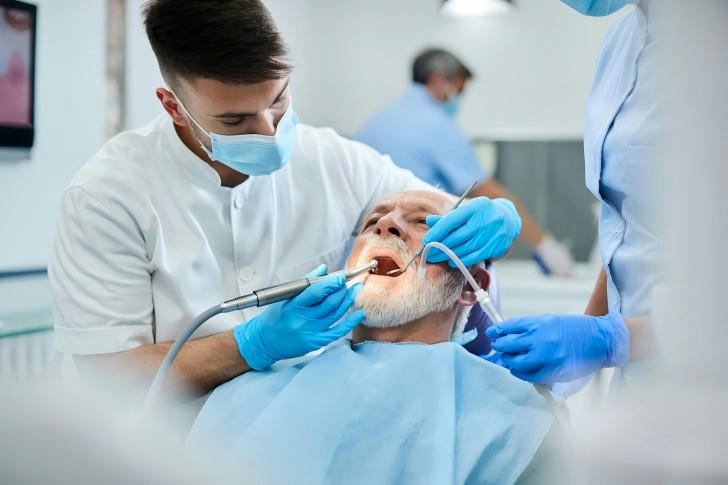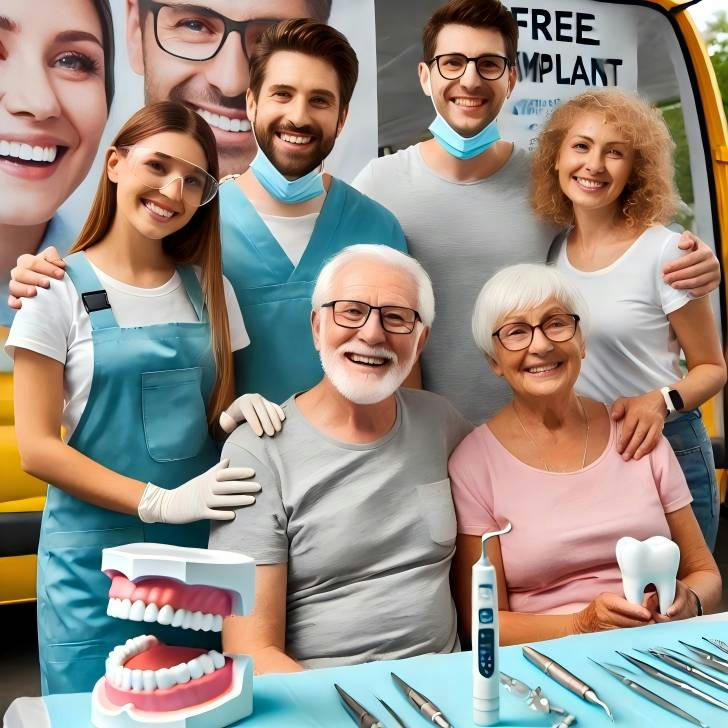How do seniors apply for the free dental implant program?
Dental implants are a vital means for seniors to restore their oral health and regain a beautiful smile. However, the high cost of dental implants often makes this treatment unaffordable for many elderly individuals. Fortunately, several government-funded programs, charitable organizations, and non-profit institutions in the United States aim to help seniors alleviate the financial burden of dental care. This article will detail how American seniors can apply for these free dental implant programs and provide real case studies to help you understand the process.

I. Understanding Insurance Coverage
Medicare and Medicaid are the most commonly relied upon healthcare insurance systems for seniors in the United States, but their coverage for dental services is relatively limited.
1. Medicare:
Medicare typically does not cover most dental services, including dental implants. However, if a senior's dental issues are related to significant health problems—for example, tooth loss due to jawbone cancer or accidents—Medicare Part A (Hospital Insurance) may pay for some related expenses.
2. Medicaid:
Medicaid is a federal and state cooperative medical program aimed at low-income groups. The coverage of Medicaid varies by state; some states may offer adult dental benefits that cover part or all of the cost of dental implants. For instance, California's Medicaid program (known as Medi-Cal) provides some dental coverage for seniors. Eligible seniors can apply for this benefit through the state government.
3. Private Insurance:
Certain private dental insurance plans may cover a portion of the cost of dental implants, especially premium plans. Seniors can contact their insurance companies to inquire whether there are specific plans applicable to dental implants or how to upgrade their policies to obtain better coverage.
II. Assistance from Charitable and Non-Profit Organizations
Several charitable organizations and non-profit institutions in the United States specialize in providing free dental care, including dental implants, for low-income seniors. Here are some organizations worth noting:

1. Dental Lifeline Network
This is a national non-profit organization dedicated to providing free dental care for seniors, people with disabilities, and those who cannot afford dental treatment. Applicants usually need to provide proof of income to demonstrate their inability to pay high dental fees. Many retired dentists volunteer to offer free dental implants and other dental services to these patients.
Case Study:
Mary, 67, from Arizona, had deteriorating dental health due to diabetes. After retirement, she relied on social security benefits to make ends meet and could not afford the expensive cost of dental implants. Through the Dental Lifeline Network, she connected with a volunteer dentist who provided her with two free dental implants. This program not only restored her smile but also significantly improved her chewing function.
2. Mission of Mercy (MOM) Clinics
This is a mobile dental clinic that provides free dental services to low-income people and seniors across the United States. Each year, MOM holds multiple free dental events in different states, offering services such as tooth extractions, fillings, and dental implants.
Case Study:
John, 72, had difficulty eating for years due to missing teeth but lived in a rural area of Michigan where access to dental care was limited. Through a local MOM free dental clinic event, he successfully received dental implant surgery, saving thousands of dollars in surgical costs.
III. Dental Schools and Teaching Clinics
Seniors can also obtain low-cost or even free dental implant services through dental schools. Many dental schools in the United States have clinics where students, under the supervision of experienced dentists, provide treatment to patients. These clinics usually charge much less than traditional dental clinics and may even waive certain treatment fees.
For example, the dental schools at New York University and the University of Southern California offer dental services at their clinics. Patients need to schedule appointments, and while there may be a waiting period, they can enjoy significant discounts.
Case Study:
Jenny, 65, living in Los Angeles, could not afford the cost of dental implants. Through the University of Southern California's dental school clinic, she received free dental implant surgery. The treatment was performed by students under the supervision of professors. Although the waiting time was long, she was very satisfied with the results.
IV. Government-Funded Programs
Some state and local governments offer specific grant programs to help low-income or elderly populations pay for dental care. Seniors can apply for these benefits through their state's medical website or community health centers. For example, Florida's "Elderly Dental Care Program" provides funding to help low-income seniors over 60 pay for dental care.
V. Free Dental Treatment Events
Each year, dental associations and non-profit organizations across the United States host free dental treatment events. These events are usually aimed at people who cannot afford dental fees, and some events specifically provide dental implants and other high-cost treatments for seniors.

Seniors can learn about the timing and location of these events by following announcements from local dental associations or contacting community service organizations.
VI. Negotiating Payment Plans with Dentists
If seniors cannot find a suitable free program, they can also negotiate payment plans with their dentists. Many dentists are willing to offer flexible payment options for patients with financial difficulties, allowing them to pay for treatments in installments or even provide discounts.
Conclusion
The cost of dental implants is high and can be a heavy burden, especially for seniors with limited income. However, through Medicare, Medicaid, charitable organizations, dental schools, and government-funded programs, seniors can obtain free or low-cost dental implant services. Real cases have shown that many seniors have improved their dental health and enhanced their quality of life through these channels.
If you or your family members meet the eligibility criteria, consider starting your application through the channels mentioned above, understand the welfare policies in your state, and take action early to receive assistance. The key to applying for free dental care is to be informed about resources, actively seek suitable programs, and negotiate appropriate payment methods or discount policies with dentists. Through these efforts, many seniors can regain a confident smile.
